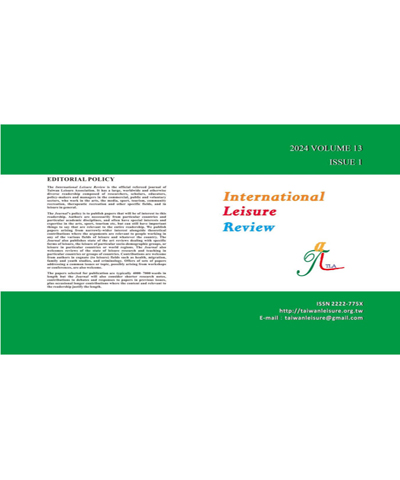
International Leisure Review
社團法人台灣休閒協會,正常發行
選擇卷期
- 期刊
YOGA AS A RECREATIONAL THERAPY INTERVENTION FOR INDIVIDUALS WITH PTSD: A SYNTHESIS OF THE LITERATURE
The diagnosis of post-traumatic stress disorder has drastically increased within the veteran population over the last decade due to the conflict in Iraq and Afghanistan. Therefore, there is a need for clinicians to provide specialized services as well as, offer additional treatment options for veterans with PTSD that are also cost effective. With the continuation of deployment, the prevalence of combat-related PTSD is not expected to decline. Prior research has evaluated that psychotherapeutic approaches (pharmacologic and non-pharmacologic) have not provided complete relief of PTSD symptoms. Thus, recent research has suggested that yoga interventions are feasible and acceptable as a PTSD treatment for veterans. The synthesis of seven articles will provide an evidence-based approach and implications for practice for recreational therapists who may want to facilitate a yoga intervention with this population. The discussion includes alternate, more accessible and cost-effective formats of delivery using the internet and Telehealth.
- 期刊
In the article a report is shown on a survey with questionnaires on the mental health of 671 Hungarian college students (Szechenyi University). The aims were the exploration of risk and protective factors that are in the background of mental disorders. In the case of the selected trials, the frequency rates of the mild and medium depressive syndrome is lower, than results of previous studies. There wasn't found significant differences between trials, and the Hungarian average values by any of the PIS factors. Moderately, but verifiably the lowest levels of operation are found in the case of the self-regulatory system.
- 期刊
Based on the perspective of leisure education, combined with the constraints theory of leisure, this article uses a literature review and survey to analyze the elementary structure of leisure behavior promotion. This study consists of two parts; the first part is intended to construct the supposed framework by analysis of related research about leisure constraints theory, the leisure elements model and leisure behavior. The second part is a survey of 423 university students to demonstrate the supposed framework. The results show that the appreciation of leisure, awareness of self in leisure and physical activity skills are related to intrapersonal constraints; social interaction during leisure is related to interpersonal constraints; facilitating leisure and leisure time planning are related to structural constraints. Education on the appreciation of leisure, awareness of self in leisure, physical activity skills in social interaction during leisure, facilitation of leisure resources and leisure time planning can be used to realize leisure constraints negotiation, promoting the students' leisure behavior.
- 期刊
Individuals with a mild neurocognitive disorder (NCD) are noted to have a mild impairment in cognitive functioning. Studies have shown that both physical and cognitive stimulation therapies are capable of improving cognitive functioning and even decreasing cognitive decline. A systematic review of the literature was used to show the effectiveness of these two therapeutic recreation modalities on improving cognitive functioning and decreasing cognitive decline, with the absence of a pharmacological approach. Considering the significant positive effects physical and cognitive interventions have separately on cognitive functioning of individuals with NCD, it was theorized that utilizing a multi-modal approach of the two interventions would prove to have an even more significant positive effect. A search was conducted utilizing journals from multiple disciplines where only quantitative research was conducted in 2010-2017 pertaining to cognitive and/or physical interventions with effects on cognitive functioning in individuals with NCD. Statistical methods within the framework of a systematic review were used to provide an overall summary of the research results available for these two interventions and cognitive functioning. The results and discussion provide recreational therapists with the background to not only help improve the cognitive functioning of their clients with NCD, but also with information of interventions that may assist in reducing cognitive decline in individuals with mild NCD. In addition, implications for recreational therapy practice include an evidence-based approach to developing cognitive and physical treatment programs for individuals with NCD. Future research on physical interventions, cognitive interventions, or a multi-modal approach of the two is also discussed.

